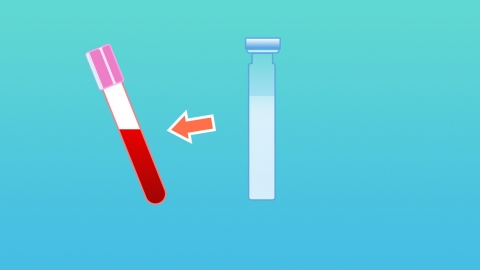What to do about high alanine aminotransferase (ALT) levels
Generally, elevated alanine aminotransferase (ALT) levels may be caused by long-term late-night habits and fatigue, excessive alcohol consumption, non-alcoholic fatty liver disease, viral hepatitis, drug-induced liver injury, and other factors. It is recommended to seek timely medical consultation to identify the underlying cause and improve the condition under a doctor's guidance through general treatments, medications, and other approaches. A detailed analysis is as follows:

1. Long-term late nights and fatigue: Chronic lack of sleep and excessive fatigue can increase the metabolic burden on the liver, leading to a mild elevation in ALT levels. This is often accompanied by fatigue and poor mental state. Adjust your schedule, ensure 7-8 hours of sleep every night, avoid staying up late, reduce heavy physical labor and high-intensity work, and allow the liver sufficient rest.
2. Excessive alcohol consumption: Alcohol is mainly metabolized in the liver, and long-term or excessive alcohol consumption can damage liver cells, causing the release of enzymes into the bloodstream and resulting in elevated ALT levels. Immediately reduce alcohol intake or quit drinking altogether. Avoid alcoholic beverages such as white spirits, beer, and wine. Adopt a light diet to reduce the burden on the liver.
3. Non-alcoholic fatty liver disease: Accumulation of fat in liver cells affects liver function, leading to elevated ALT levels, often accompanied by overweight or obesity. Patients may use medications such as silymarin capsules, polyene phosphatidylcholine capsules, and dipotassium glycyrrhizinate enteric-coated capsules under medical guidance to protect liver cells.
4. Viral hepatitis: Infection of liver cells by viruses such as hepatitis B or C can trigger an inflammatory response, causing elevated enzyme levels. Symptoms may include decreased appetite and jaundice. Patients should take antiviral medications such as entecavir tablets, tenofovir disoproxil fumarate tablets, and lamivudine tablets as directed by a physician.
5. Drug-induced liver injury: Long-term use of medications such as ibuprofen sustained-release capsules and statins may damage liver cells, causing elevated ALT levels. Discontinue or switch hepatotoxic medications under medical supervision. Additionally, use liver-protective medications such as reduced glutathione tablets, compound glycyrrhizin tablets, and tiopronin enteric-coated tablets as prescribed. Regular follow-up liver function tests are necessary.
In daily life, avoid spicy and greasy foods. Consume more fresh vegetables and fruits to supplement vitamins. Maintain emotional stability, avoid anxiety and anger, reduce hepatic stress responses, and promote liver function recovery through comprehensive lifestyle adjustments to bring ALT levels back to the normal range.






